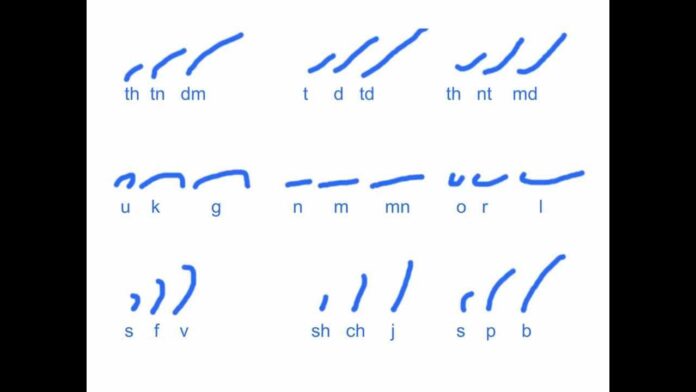
The Lost Art of Steno Gregg Shorthand: A Journey into Forgotten Efficiency
In today’s modern world, where technology reigns supreme, the art of shorthand has become a lost skill. Once a staple in the world of business and journalism, shorthand was a quick and efficient way to take notes and transcribe information. But with the rise of computers and smartphones, shorthand has been pushed to the wayside in favor of digital typing and voice-to-text software.
However, there was a time when shorthand was not just a valuable skill, but an essential one. One such method of shorthand, known as Gregg Shorthand, was particularly popular in the early to mid-20th century. Developed by John Robert Gregg in the late 19th century, Gregg Shorthand was a system of phonetic writing that allowed users to quickly and accurately transcribe spoken words.
Despite its efficiency and popularity, Gregg Shorthand has largely fallen out of use in recent years. But some die-hard enthusiasts are keeping the art alive, determined to preserve its unique history and functionality.
The Origins of Gregg Shorthand
John Robert Gregg, an Irishman born in 1867, first developed his shorthand system in the late 19th century. Gregg was inspired by earlier shorthand systems, such as Isaac Pitman’s Pitman shorthand, but he believed that these systems were too complicated and cumbersome.
Gregg set out to create a simpler, more streamlined system of shorthand that would be easier to learn and use. After years of development and refinement, he introduced Gregg Shorthand to the world in 1888. The system was an instant success, quickly gaining popularity among stenographers, journalists, and secretaries.
Gregg Shorthand was based on the principle of phonetics, where each symbol represented a sound rather than a letter. This made it easier to write quickly and accurately, as users could focus on capturing the spoken sounds rather than worrying about spelling.
The system was also designed to be highly efficient, with common words and phrases having their own unique symbols. This allowed users to write quickly without sacrificing accuracy or clarity.
The Rise and Fall of Gregg Shorthand
Throughout the early to mid-20th century, Gregg Shorthand was the shorthand system of choice for businesses, government agencies, and journalists. Its ease of use and efficiency made it an invaluable tool for anyone who needed to take notes or transcribe information quickly.
But as technology advanced, the need for shorthand dwindled. Typewriters, computers, and eventually smartphones made it easier to type and transcribe information digitally, rendering shorthand obsolete for many.
By the late 20th century, Gregg Shorthand had largely fallen out of use. Many schools and businesses stopped teaching shorthand, and those who still used it were seen as relics of a bygone era.
But for some, Gregg Shorthand was more than just a tool – it was a beloved skill that they were determined to preserve. Enthusiasts and historians began to study and teach Gregg Shorthand, ensuring that its legacy would not be forgotten.
The Lost Art of Gregg Shorthand Today
While Gregg Shorthand may no longer be a practical skill for most people, there are still those who value its efficiency and beauty. Enthusiasts and historians continue to study and teach Gregg Shorthand, keeping its legacy alive for future generations.
For those who are interested in learning Gregg Shorthand, there are resources available online and in books. While mastering the system may take time and practice, many find it to be a rewarding and enjoyable pursuit.
In a world where speed and convenience are king, Gregg Shorthand may seem like a relic of a bygone era. But for those who appreciate its unique history and functionality, the lost art of shorthand remains a fascinating journey into forgotten efficiency.

















